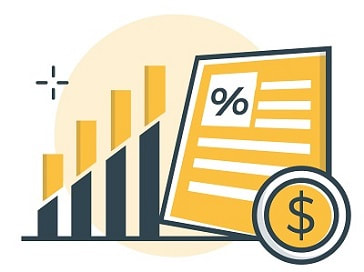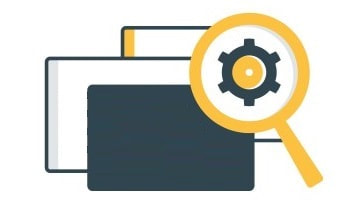How to Lower Your Power Bills
As power prices increase, our guide explains specific ways you can save and why comparing your current deal is essential to make sure what you pay isn't a 'loyalty tax'.
Updated 8 May 2024
Summary
Our guide covers:
Summary
- We believe the best way to save money on electricity is to understand how it works.
- This guide has must-know facts about everything you need to know.
- We believe that too many New Zealanders pay too much based on their loyalty - regularly checking our power comparison research will help you know if your power company is offering a fair deal or charging you too much.
- This is the first edition of this guide - if you have any comments or suggestion, please get in touch with our research team.
Our guide covers:
MoneyHub Founder Christopher Walsh shares his views on lowering electricity costs:
|
"I say in a recent Stuff.co.nz column that electricity comparisons can be complicated. Many MoneyHub users have asked us about what electricity provider is the cheapest. The answer isn’t simple – it depends on where you live and whether you’re a low user or a standard user. But even then, there’s a lot of ways the industry makes it near-impossible to compare like for like".
"The fastest way to save money is (unsurprisingly) to use less electricity. The second fastest way is to switch providers. I comfortably argue that hundreds of thousands of New Zealanders pay too much for the electricity. Power companies don’t make understanding their prices easy which keeps their customers 'profitable'. However, the more you know, the more you can save". "We believe switching will help you save and, no pun intended, give you the power and confidence to control how much you spend. It's a fact that many New Zealanders who have overpaid, found a better offer and notified their long-standing retailer they will switch, only to be offered huge ongoing discounts to keep them as a customer. We don't think that's fair either, but, again, the more informed you are the more power you have". |
MoneyHub Founder
Christopher Walsh |
Must-Know Facts about Electricity, Plans, Prices and Switching
Electricity Prices are Increasing, and Everyday New Zealanders are Struggling and StressedDespite a lack of competition in the market, there appears to be no way back from annual power price increases. A lack of government oversight doesn’t help either – we believe consumers need to, now more than ever, compare and switch to avoid overpaying.
A government report in late 2018 showed that everyday New Zealand consumers faced significant increases in power costs since 1990, with (inflation-adjusted) residential prices rising 79 per cent, while commercial prices had dropped 24 per cent. Currently, there is something of a two-tier residential electricity market – those who compare and switch save money, and those who remain loyal where many end up paying higher prices. We believe access to affordable power is a basic consumer right but, sadly, the costs are high. Most affected are low-income consumers and the elderly, which is unfair. In a report from Consumer NZ in late 2018, 20% of consumers had trouble paying for their power bill in the past year, 14 per cent were charged overdue fees and 13 per cent had to borrow to pay it. A Consumer NZ study reported that in 2017, 25,317 people had their power disconnected because of unpaid bills, up from 19,106 (or 33%) in 2016. Our view is that the electricity market needs to be regulated – the costs of generating power and distributing it are not increasing at the same rate of the power price hikes. Until there is government policy, we strongly suggest comparing and switching to save money. The BIG savings ONLY come from switching. |
Power switching and comparison sites don't always display all plans by defaultWe believe that while a number of power comparison websites exist, there are limitations. Some comparison websites, by default, only show you plans you can switch to via them – this means they are paid commission. This, unfortunately, removes some results, or in other cases highlights the ‘sponsored’ power companies at the top of the results. Our comparison results show ALL power companies in the order of total annual cost for our sample power use.
Our Tip: If you do use an electricity comparison website, be sure to select the option to show ‘all available plans’, if this option does exist, before making any decision. It is also important to cross-check the quotes you get with the power companies directly to ensure accuracy. |
Most Electricity Retailers offer a number of plans, which can be very confusingIt’s important to know that each electricity retailer has a range of plans which have their own pricing, early payment discount, sign-up credits and ongoing discounts. You may switch to the ‘cheapest’ retailer, but unless you are on the right plan, you may overpay. Only three factors really matter:
MoneyHub reader John writes:
"I did a price comparison and found that switching would save us around $450 a year, primarily due to the lower kWh charge. I contacted my existing power company who did everything they could not to lose me. I copy this, word for word, on what I was offered:
I was very annoyed that all of these discounts were suddenly available, and challenged them why I wasn’t moved to a ‘Low User Plan’ in the first place. The answer was that my monthly bills would have suggested I switch, but there was no mention of this at all. When I told them, their employee said it was something ‘they could improve’ on the bills. It was all very fishy, and I am pleased to have switched to a company which is cheaper, although I am wondering what offers I would receive if I threaten to leave them!" |
Very Few Electricity Retailers offer 'early payment discounts' - now it's all about pricePower companies like to be paid on time, and historically have offered a range of incentives for ‘early payment’. The practice has been criticised as contributing to unfairly penalising ‘poor’ customers while households with spare money can take advantage of the discount. MoneyHub is featured in this Stuff.co.nz article about prompt payment discounts (PPD), which have largely been discontinued.
|
Electricity companies often do Credit ChecksMost electricity companies will perform a credit check – this is to protect them from customers who run up a bill and fail to pay. If you are concerned about your credit history and want to make sure everything is in order, our guide to credit scores and credit checks has everything you need to know.
Important – payment history data from electrical bills are shared with crediting agencies by electricity retailers so it’s essential not to neglect these bills. A missed or late electrical bill could affect a mortgage application or personal loan application later on. If you're young and building credit, please keep this in mind. |
The easiest way to save money is, predictably, by using less electricityYou can switch retailers and save money, and then save even more money by changing your behaviour with some simple easy-to-do thing.
|
Do a meter reading BEFORE you sign up for a new dealIf you’ve moved into a new property or are just switching existing providers, it’s easy to get an electricity reading (if it doesn't have a smart meter).
MoneyHub user Matt writes: "I connected our student flat without doing an initial meter reading. We got some ‘adjustment’ a couple of months later for $300. I didn’t understand as it was summer in Dunedin and if anything our power had been low. The electricity company told me when they did a reading they charged us for everything since the last person to live in the flat’s bill. I told them that has nothing to do with us and it’s unfair given we had just moved but, but the law was on their side. We had to pay. The lesson is to ALWAYS get an initial reading done when you sign up for a power contract. This means you start effectively at zero and only pay for what you use, and not a previous tenant’s power". |
Do a meter reading to make sure you're paying what's rightIf you don’t have a smart meter, do a meter reading every time you get a bill. Electricity company estimates are often completely inaccurate. Reading your meter isn’t difficult or scary – it’s just one number after all - the kWh consumption. By not regularly reading your meter, you are either being:
Know This: Smart meters help stop this as they send meter readings automatically to your supplier, so you only pay for what you use. |
Must-Know Tips to Save on Your Power Bill
Given that your power bill is primarily driven by the amount of kWh consumed by your household, it’s a good idea to choose energy-efficient appliances. The Energy Efficiency and Conservation Authority (EECA) recommends looking at the “energy rating” decal when buying any electrical device since it can give you an idea of the kWh that it consumes.
Below is a breakdown of the average household electricity usage in New Zealand based on EECA’s Energy End Use Database:
Small investments and changing habits that add up to long-term savings include:
If you own your own your own home:
Good habits for everyone:
Have an expert tip to save money on electricity bills?
If you have power bill-busting tips you would like to share with our readers, let our team know.
Below is a breakdown of the average household electricity usage in New Zealand based on EECA’s Energy End Use Database:
- 27% of the energy is used for heating water
- 20% goes towards electronic devices such as TVs, video consoles, computers, laptops, and more.
- 17% is consumed by fridges or other types of refrigeration appliances
- 15% is used to keep the household warm
- 13% of the energy is used in lighting
- 5% goes towards cooking
- 3% of the total energy is destined to drying clothes
Small investments and changing habits that add up to long-term savings include:
- Replace your incandescent and halogen light bulbs for power-efficient LED bulbs. You can save good money by just changing your light bulbs. LED lights can help you reduced by more than half the energy used for lighting. Moreover, since LED bulbs last longer, you are also saving time and money in the long run.
- Change your power consumption habits. You can save energy by just changing your habits. For instance, you could turn appliances off at the wall instead of leaving them on standby. Contrary to what many think, standby mode does consume a lot of energy. For instance, a microwave that “only uses 5 watts of standby power” is actually consuming almost 44kWh a year (around $10/year). The costs of these appliances on standby add up. Another way to save energy is by washing dishes by hand instead of using the dishwasher, or hang-drying your clothes during the summer.
- Purchase energy-efficient appliances. The Energy Efficiency and Conservation Authority (EECA) suggests favouring power-efficient appliances over power-hungry devices. Smart appliances and devices such as thermostats, fridges, TVs, and more can save you up to 25% energy when compared to conventional models.
If you own your own your own home:
- Invest in double glazing - this makes a huge difference in winter by retaining heat
- Insulate your roof and/or walls - many homes around the country lack insulation and now many local governments offer assistance - this guide has all the details
Good habits for everyone:
- Turn off anything left on standby - this includes TVs, computers, video game consoles
- Turn down your heating or install a smart thermostat
- Buy energy efficient appliances
- Wash your clothes at lower temperatures
- Turn off towel rails - they're inefficient to run and you could save $100s every year
- Sell the mini/beer fridge - switching off the beer fridge could save you up to $200 per year
Have an expert tip to save money on electricity bills?
If you have power bill-busting tips you would like to share with our readers, let our team know.
Glossary - Energy, kilowatt hours, and other technical terms
Saving electricity is easier when you understand how it works (and how you're charged). All electricity charges are based on units called kilowatt hours (kWh). However, there are related terms which aren't widely understood in New Zealand. Our glossary below expands on terms such as kilowatt, kilowatt-hour, power, smart meter etc. and helps you understand what each of them is about.
- Watt. A watt is a unit used to measure the electrical power used by an appliance. For instance, a 1,000W toaster draws more power than another model consuming 500W.
- Kilowatt. As with any other international system unit, “kilo” means “one thousand”. So a kilowatt is equivalent to 1,000 watts. Depending on the device or appliance, its power could be expressed either in kilowatts (kW) or watts (W).
- Kilowatt hour. Contrary to kilowatts that measure electrical power, a kilowatt hour indicates the accumulated amount of power being used over a given period of time, in other words, the energy used. From our previous example, a 1,000W toaster draws the equivalent to 1kW meaning that if you turn it on for one hour you will end up consuming a total of one kilowatt-hour (1kWh). In that case, the electricity retailer will bill you for 1kWh. Similarly, if you turn it on for only 30 minutes then you will be charged for 0.5kWh.
- Electricity meter. The electricity meter, also known as energy meter, is a device designed to measure the number of kilowatts-hour delivered to your home
- Smart (Electricity) Meter. A Smart Meter is a more advanced version of the conventional electricity meter. Aside from measuring the number of kilowatts consumed, the Smart Meter measures voltage levels, electric current, and power factor. That information is sent in real-time to power companies so they can understand power consumption tendencies, manage the Smart Grid, and give you a more detailed (and fair) bill at the end of the month.
- Smart Grid. Similar to the Smart Meter, you can think of the Smart Grid as an upgraded version of the conventional electric grid infrastructure. By using a sophisticated array of sensors (including Smart Meters), electronically-controlled modules, and automation controls power companies have the ability to measure in real-time many aspects related to transmission, distribution, and consumption of energy. You can have a see this technology by checking the Power System Live Data.
- Energy storage. This is a relatively new concept that has emerged as a product of the rise of electric vehicles and the Smart Grid in New Zealand. In addition to being able to generate your own electrical energy through solar panels or windmills, now you can also sell excess energy back to the retailer or wholesale market. Moreover, you can even sell the energy stored in your electric car thanks to the Smart Grid.
- Daily fixed charge. According to the Electricity Authority, a fixed charge is “a charge levied for each customer connection in currency per time period (for example, cents per day)” In other words, it’s a charge that has nothing to do with how much energy you consume since is a fixed amount that is billed each day.
- Low Fixed Charge. In 2004 a new electricity regulation known as “Low Fixed Charge Tariff Option for Domestic Consumers” was introduced in New Zealand. This law, changed in 2022, limits the fixed charge for “low users” to 60 cents + GST per day, and it will continue to increase per this government guidance.
- Low user. In conformity with current regulations, a low user is any customer who uses less than 8,000 kWh per year (North Island) or 9,000 kWh per year (lower parts of the South Island). Due to its low fixed charge, low users typically pay a much higher cost per kWh (variable charge).
- Variable charges. The Electricity Authority defines a variable charge as “a charge that varies according to the amount of electricity consumed”. In simple words, the total amount of energy (kWh) your home consumes during a month is considered a variable charge.
- Standard user. A standard user is a customer exceeding the annual consumption threshold established for low users. Currently, most households in New Zealand fall into this category. Since standard users pay a higher “daily fixed charge” their cost per kWh is much lower in comparison to low users.
Related Guides:













